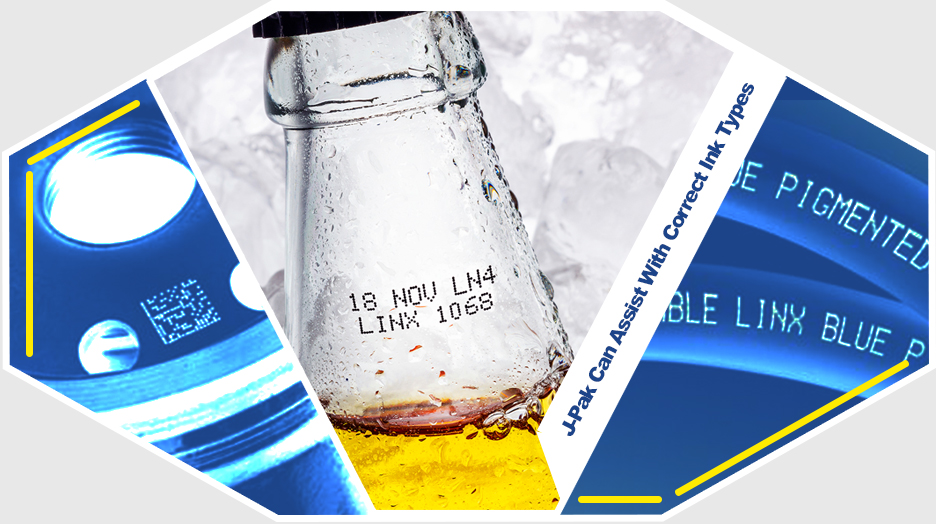
Think about your ink – Why is ink critical in the food manufacturing industry?
Are you aware of why ink is vital for products to be allowed on the shelves? Most people don’t know how important it is to have specific codes printed on the products that are
going to be sold in any shop. If you are in the food manufacturing industry, you should have a good idea of why coding and marking are significant.
Why do codes need to be printed on packaging and labels?
Food manufacturers should have a good knowledge of the range of inks available in the marketplace. Each product will have a different path that it will go down when it comes to
packaging, printing and what sort of inks would suit the process of manufacturing the best.
Deciding what ink would suit your needs in terms of quality, reliability, cost, and what the product and packaging will undergo in the process is an important concept to consider.
By law, the date code and batch code must be printed on products to be eligible for sale.
Date codes include production dates and expiration dates, which are printed on products to keep track of when the product was made and when the product will expire.
Batch codes are printed on products for traceability if, for some reason, a product needs to be recalled. Batch codes need to be on every product, as heavy fines can be imposed
if codes are not up to standard or if they are not readable.
Linx inks for CIJ printing
Many different inks are available for use in the food industry. There is specific ink made
that is suitable for printing on food products such as eggs and cheese. There is also a selection of specialist inks for printing on packaging materials like paper labels, plastic packaging, cardboard, and bottles. These inks have been created for these purposes in mind, evaluated and trialled to make sure each ink is functional for its distinct functions. Linx inks are quality assessed following ISO 9001 and are held to the highest specifications.
Inks for harsh environments
Ink needs to be able to withstand harsh conditions and environments, and Linx supplies
ink that is suitable for such requirements. These inks are made to not fade regardless of the circumstances, dry quickly and be certified food grade.
Linx has ink that can be easily coded onto polyethene and other plastic containers.
Alcohol-resistant ink is also available when products are cleaned with alcohol-based
cleaners. Your codes will stay intact even when harsh cleaning products are used.
Inks used in retort processes
Linx ink has specially formulated ink for the retort process to resist moisture, transference, and colour change. This is especially important as products go through sterilization, and printed codes need to be able to withstand this. Contents are usually cooked in the packaging after they are coded, so codes must resist these conditions.
An additional option that can be used for this process is thermochromic inks. These inks undergo a chemically resistant colour change when exposed to wet and hot conditions. This supplies a visual marker that these products have gone through the sterilisation process, making the manufacturing process more efficient and organised.
Black inks for the food manufacturing industry
There are many choices when it comes to Linx’s black inks for food manufacturing.
Inks can be:
- Fast drying and able to withstand temperatures up to 200°C
- Oil-penetrating Inks that can be printed through light layers of oil onto plastic substances
- Inks used for printing on metal, glass, and waxy surfaces
- Inks that can withstand oil later in the manufacturing process.
- Alcohol-based ink with a low odour and great adherence to various substrates. This specific ink is ketone and chromium-free, which means it meets the USDA requirements for accidental contact with meat and poultry.
- Linx also has an array of eco-friendly MEK-free inks
All Linx Inks have superb adhesion on food packaging containers that are rigid and flexible, and these inks can even be exposed to condensation with little effect.
Meeting the food industries ink requirements
Linx’s inks, with their extensive range of specialist inks, are all certified for CIJ printers. This means that all your printing will meet legislative requirements in the food manufacturing industry.
You can chat with us at J-Pak for inks for coding and printing, and we will be able to give you the best advice based on what you need. Get in contact at www.jpak.co.za/contact-us
#foodindustryink #foodprocessingink #foodmanufacturingink #codingandmarking #Linx #CIJPrinters

